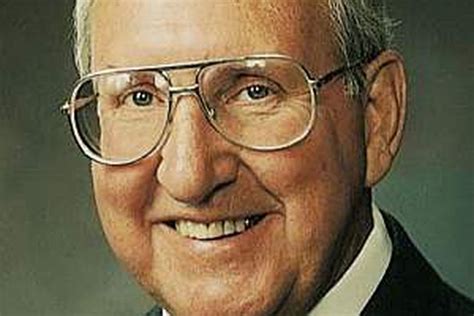Цитата Чарльза Сперджена
Я не единственный, кто осуждает праздность; на этот раз, когда я собирался дать нашему служителю довольно длинный список грехов одного из наших людей, о которых он спрашивал, я начал со слов: «Он ужасно ленив». "Достаточно," сказал старый джентльмен; "Все виды грехов в этом.
Связанные цитаты
Трудно жить в темпераментах, с которыми мы родились. Все мы начинаем хорошо, потому что в нашей юности нет ничего более нетерпимого, чем наши собственные грехи, выписанные на других, и мы яростно боремся с ними в себе; но мы стареем и видим, что эти наши грехи из всех грехов действительно безобидны, более того, они придают очарование любому характеру, и поэтому наша борьба с ними угасает.
Мы не должны смотреть на наши грехи как на незначительные пустяки. С другой стороны, мы не должны считать их настолько ужасными, чтобы отчаиваться. Научитесь верить, что Христос дан не за пустяки и мнимые прегрешения, а за горные грехи; не на одного или двоих, а на всех; не за грехи, которые можно отбросить, а за грехи, которые упрямо укоренились.
Извинения за наши прошлые грехи могут раскрыть характер и на время ослабить антиамериканизм за границей, но если это делается без признания того, что грехи Америки являются грехами человечества и что наши средства правовой защиты так часто исключительны, тогда это приносит лишь временную пользу. аплодисменты — и более стойкое презрение к тому, что мы сами не верим в ценности, которые исповедуем.
Омовение в Ганге, несомненно, освобождает от всех грехов; но что это дает? Говорят, что грехи сидят на деревьях по берегам Ганга. Не успел человек вернуться из святых вод, как старые грехи прыгают ему на плечи с деревьев. Те же старые грехи снова овладевают им. Едва он выбирается из воды, как они обрушиваются на него.
Очень важно, чтобы мы обновляли наши заветы, принимая причастие. Когда мы делаем это с искренним сердцем, с истинным намерением, оставляя свои грехи и возобновляя наше посвящение Богу, Господь дает способ, посредством которого грехи могут прощаться каждую неделю. Просто есть хлеб и пить воду не принесет этого прощения. Мы должны приготовиться, а затем принять с сокрушенным сердцем и кающимся духом. Духовная подготовка, которую мы делаем, чтобы принять причастие, необходима для получения прощения наших грехов.
Как кротость во всех наших добродетелях, так и гордость во всех наших грехах. Каким бы сиюминутным и соблазнительным ни было ее обличье, гордыня есть враг, «первый из грехов». Одна из причин, по которой следует особенно остерегаться гордыни, заключается в том, что «дьявольская стратегия Гордыни заключается в том, что она атакует нас не в наших самых слабых местах, а в наших самых сильных. Это в первую очередь грех благородного ума». Не только благородного ума, но и полуправедного.
Что есть само Евангелие, как не милосердная умеренность, в которой послушание Христа почитается нашим и наши грехи возлагаются на Него, где Бог из судьи становится нашим Отцом, прощающим наши грехи и принимающим наше послушание, хотя и немощное и пороковое? Теперь мы возносимся на небеса по завету благодати путем любви и милосердия.



































